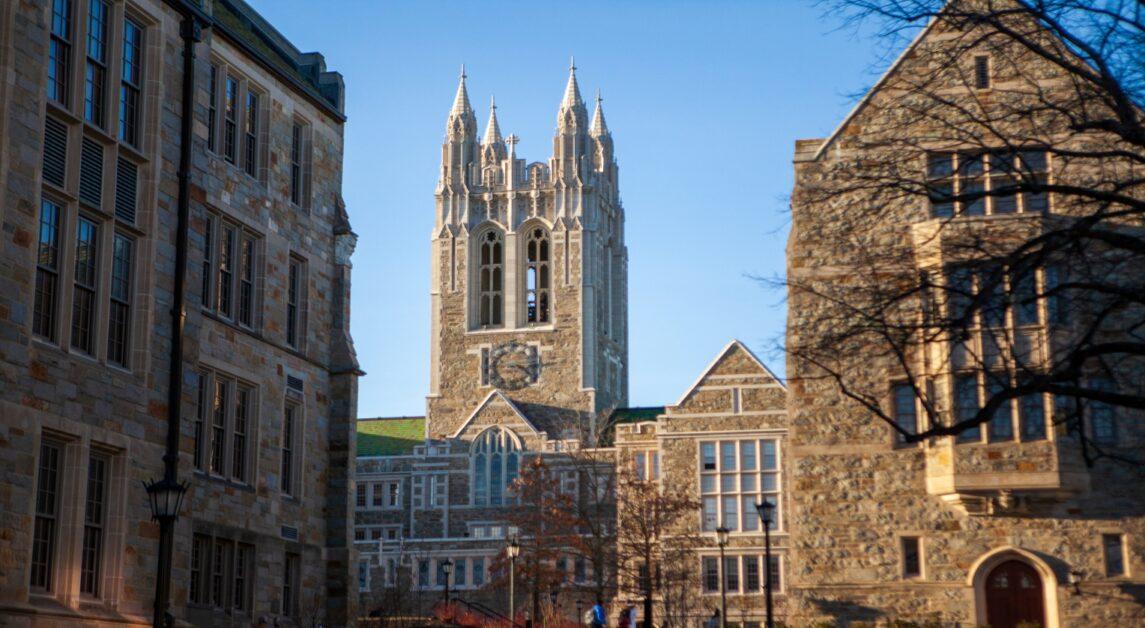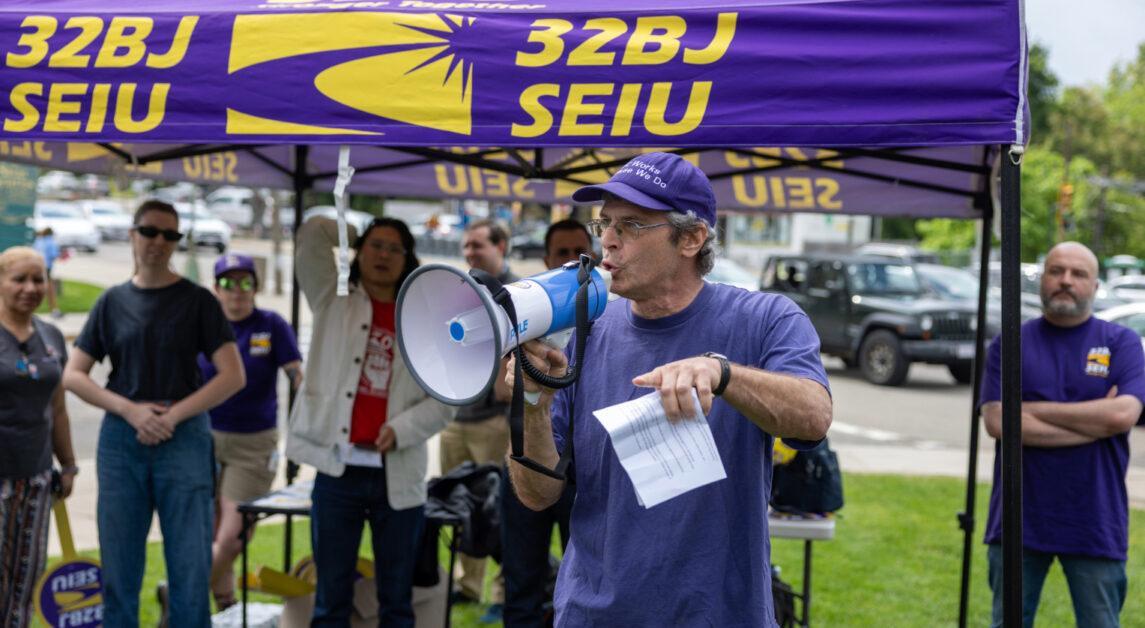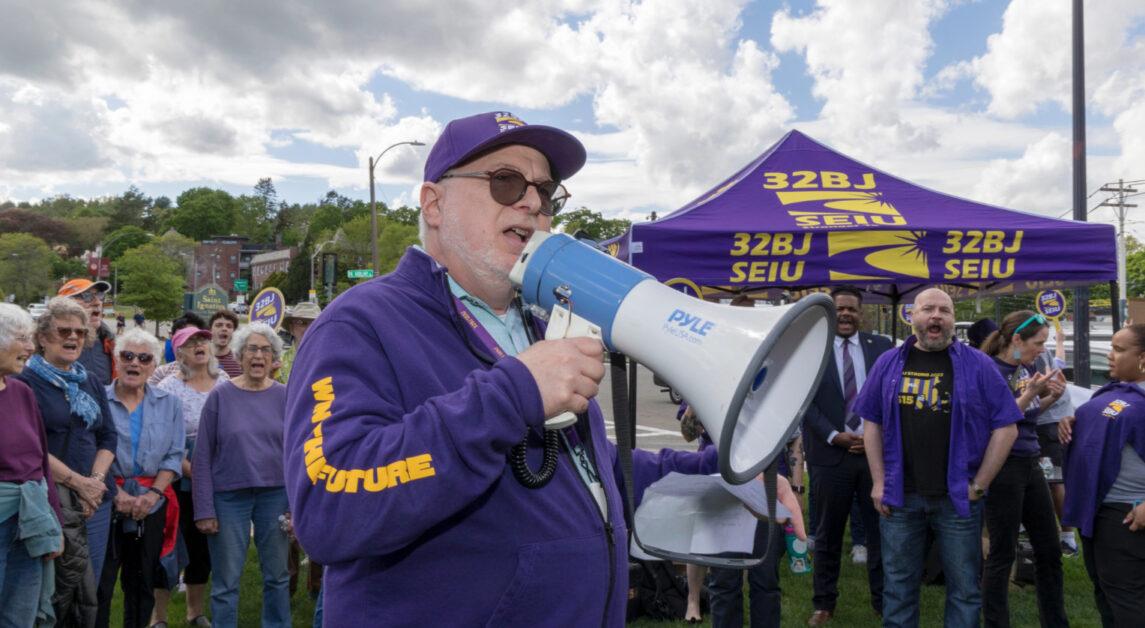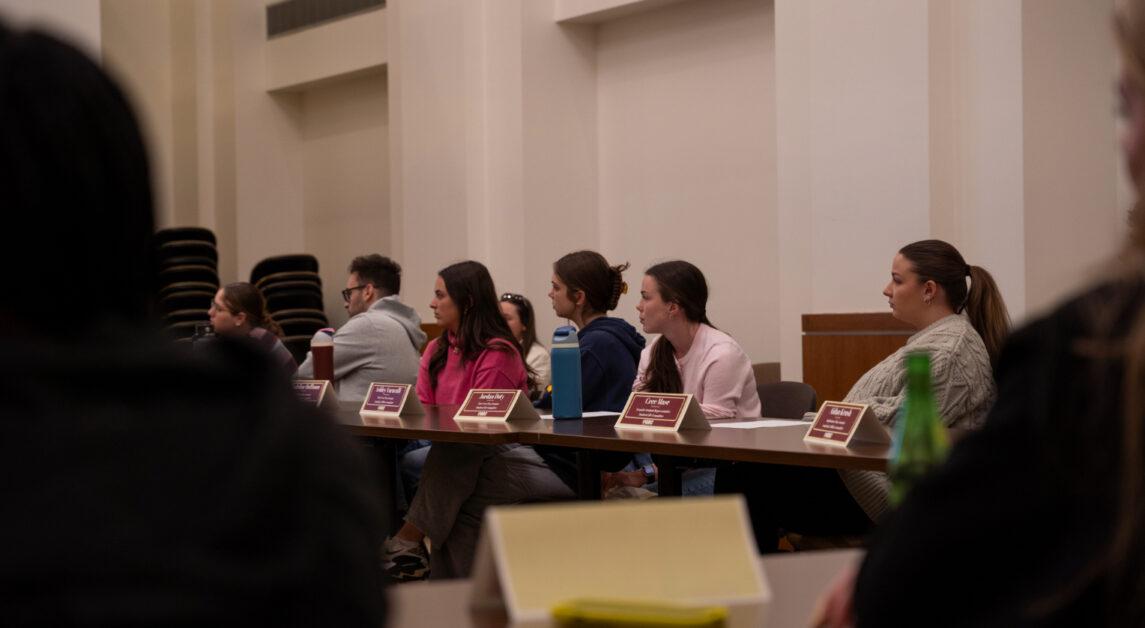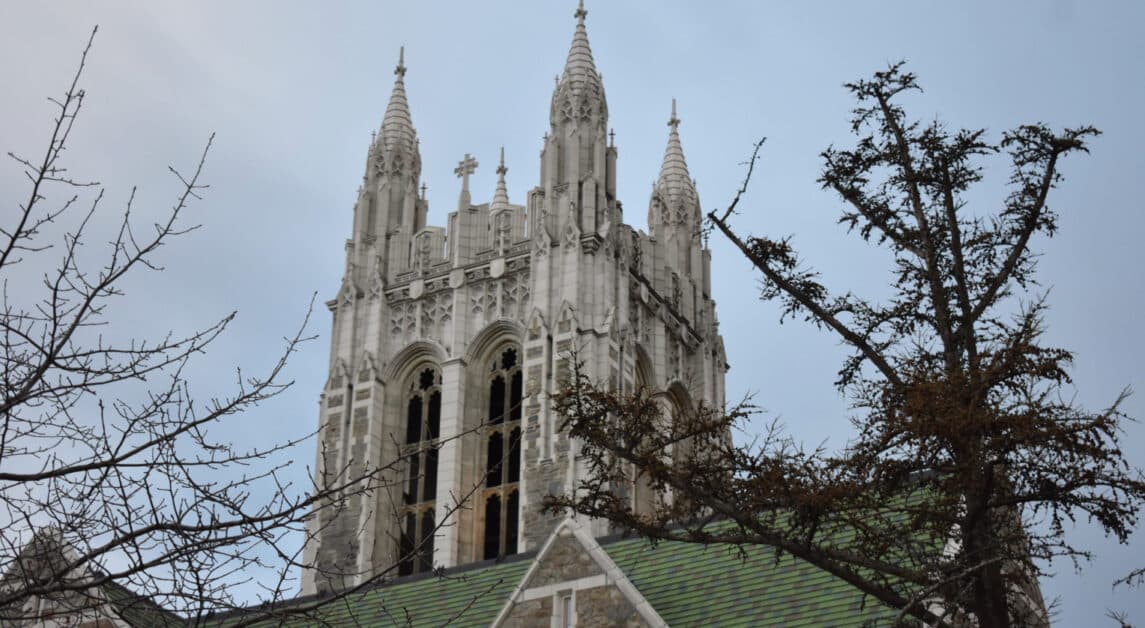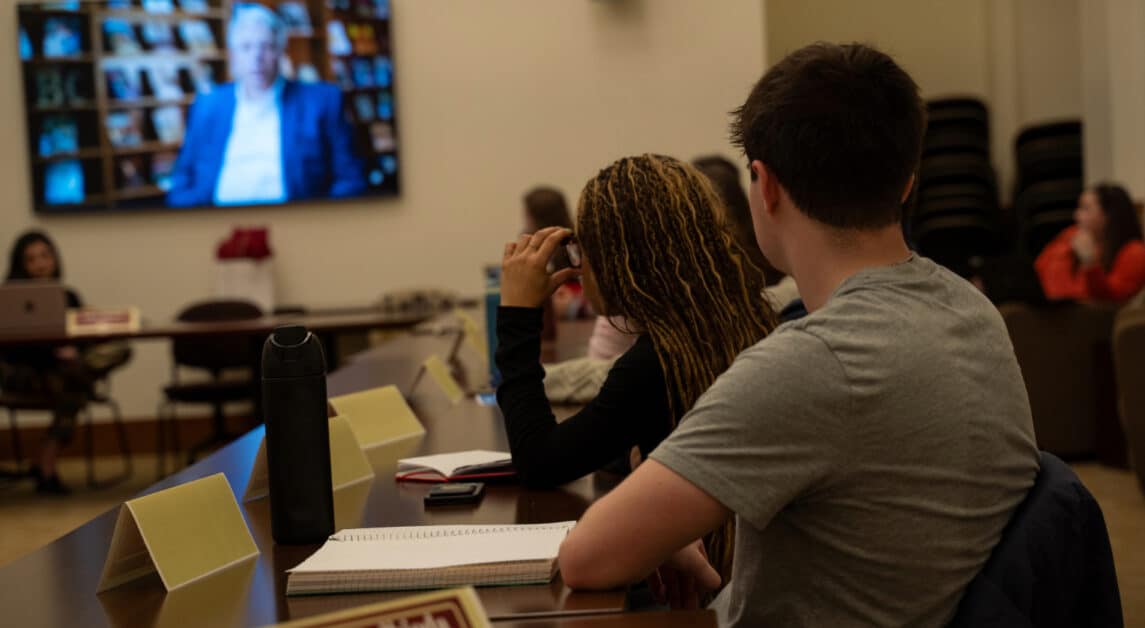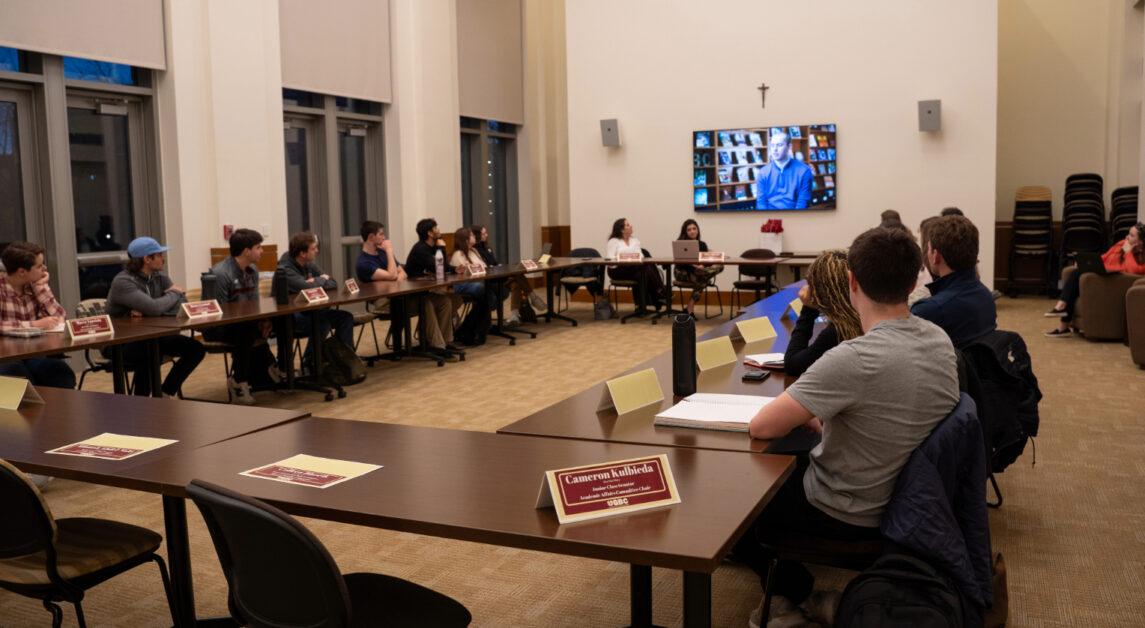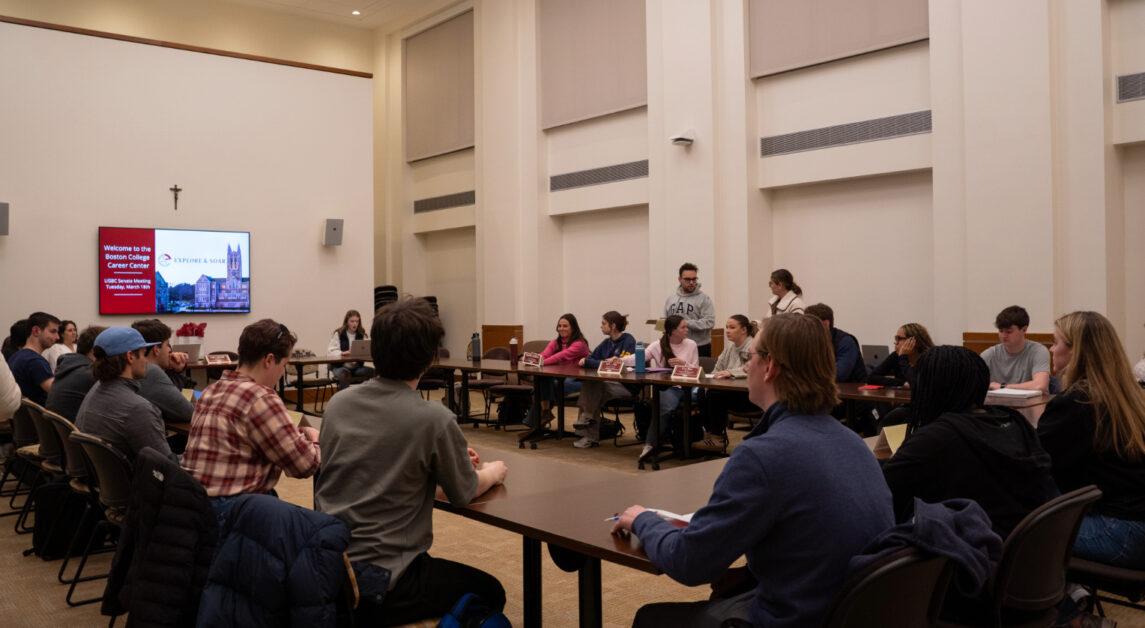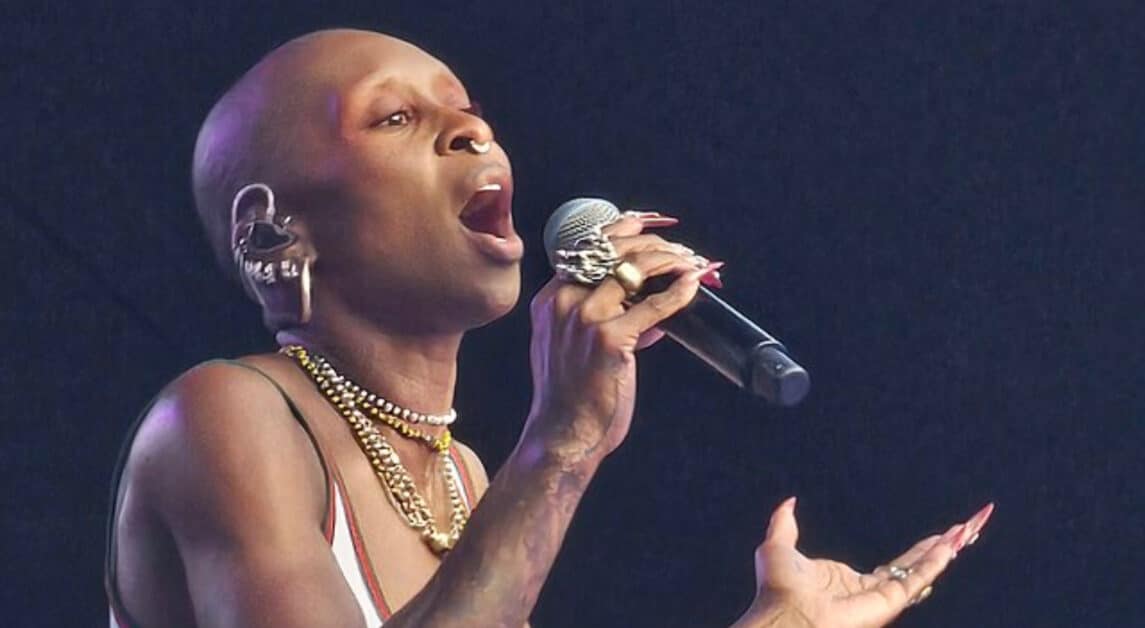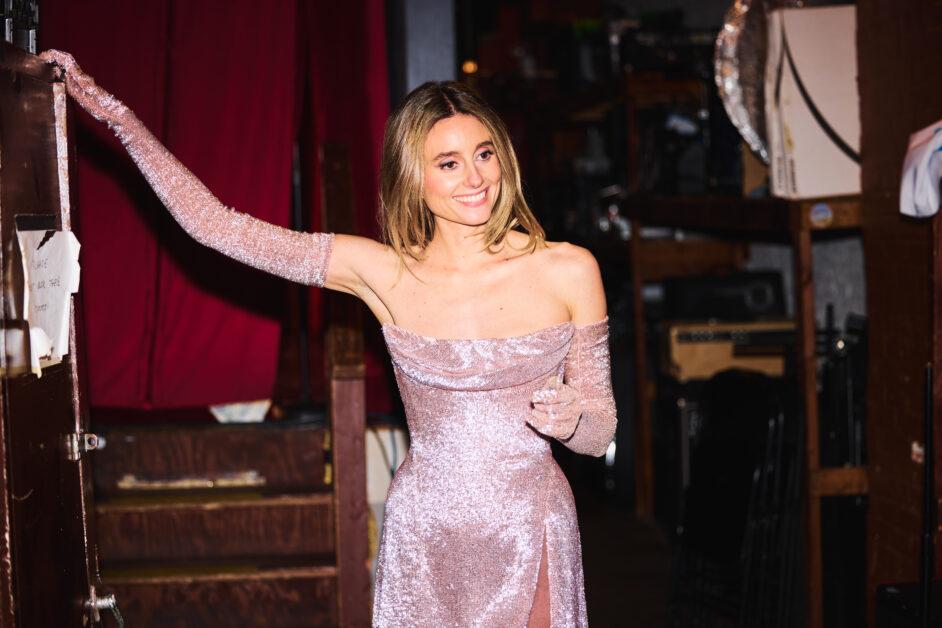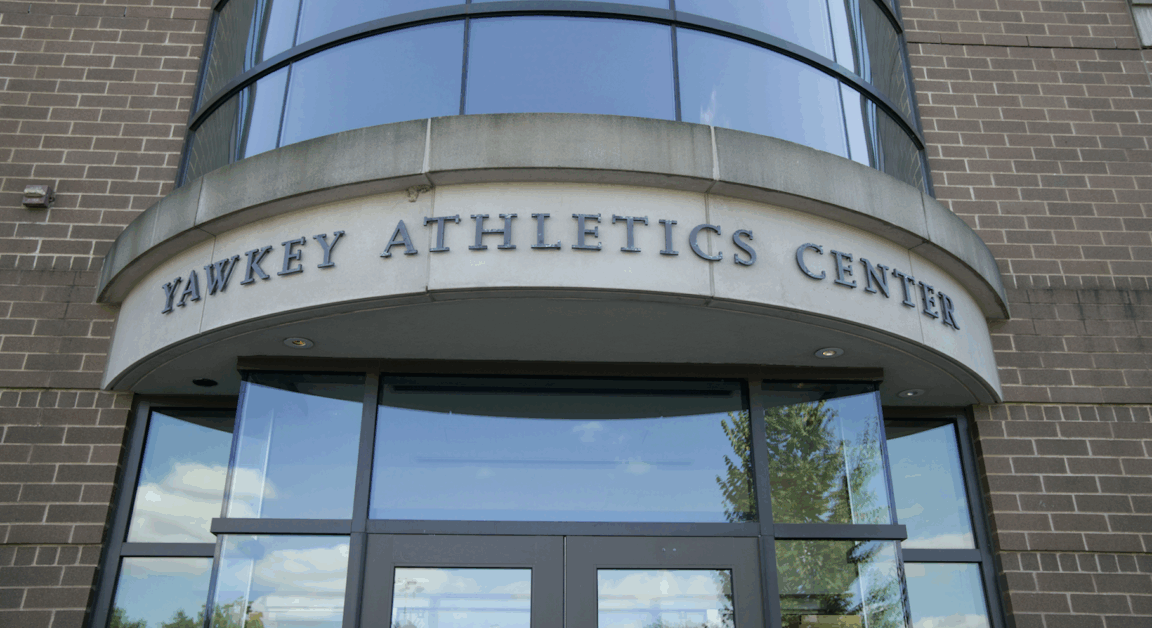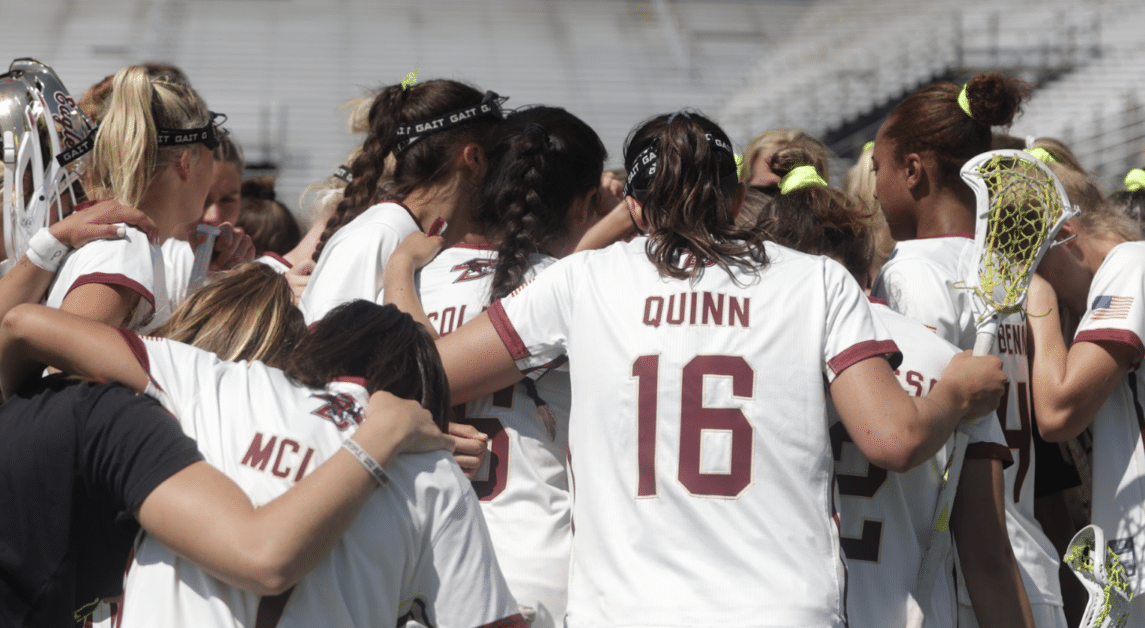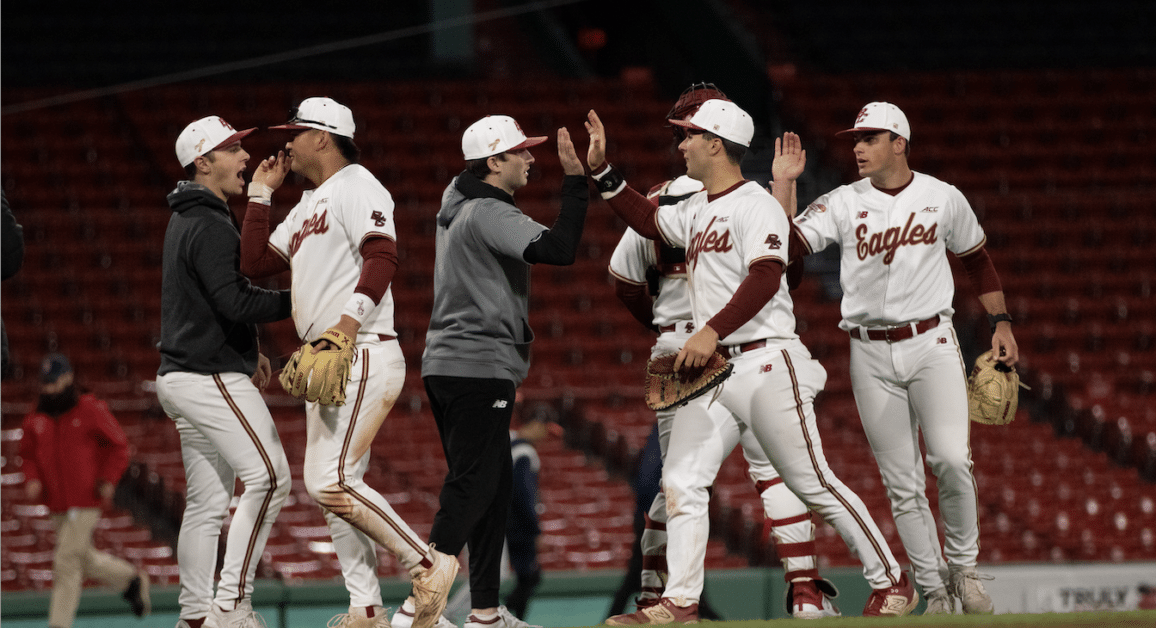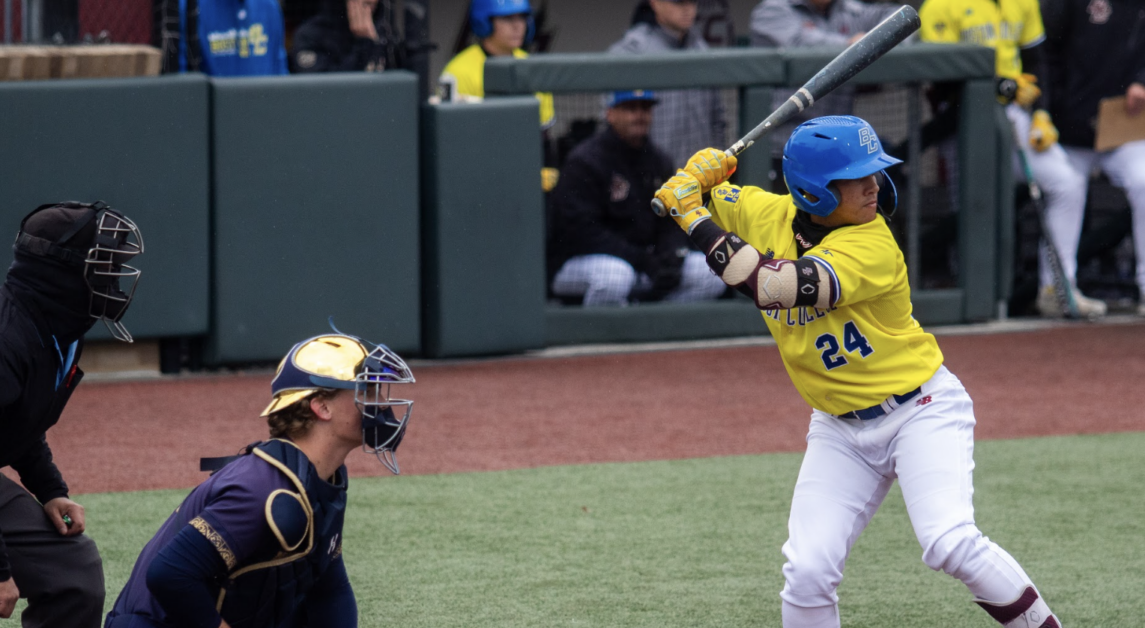CLP Senior Victory Coordinator Michael Yurkovskiy first reached out to Julia Spagnola, UGBC vice president–elect and MCAS ’23, while she was still a representative in the Student Assembly (SA). Spagnola said that when she first received the LinkedIn message from Yurkovskiy, she had no idea that he had also reached out to other members of UGBC in the past.
“I just thought it was a little sketchy to be honest,” Spagnola said. “I believe very strongly in partisan politics staying out of student government. I know that people have their own opinions but … that doesn’t translate very well into the work we do on a daily basis as student representatives.”
CLP is an offshoot of Turning Point USA, a non-profit that works to build a powerful conservative grassroots activist network on high school and college campuses, according to Turning Point’s website. The organization has ties to former President Donald Trump and has been criticized for pushing extremist, right-wing misinformation.
This discovery adds UGBC to a long list of student governments with representatives approached by CLP or Turning Point coordinators in their attempts to recruit, support, and train student leaders across the country. Both organizations have in some cases offered thousands of dollars in financial support to various student representatives as well as opportunities to participate in leadership retreats and summits sponsored by CLP.
Yurkovskiy in particular contacted and offered campaign support to student leaders and representatives at Quinnipiac University in Hamden, Conn. in the fall of 2020.
Yurkovskiy did not respond to requests for interview or comment.
Spagnola said she first saw Yurkovskiy in person on election day. As she and Lubens Benjamin, UGBC president–elect and CSOM ’23, passed through the Quad, they noticed a man standing at a table with vice presidential candidate Caleb Wachsmuth, MCAS ’24—who ran alongside Kudzai Kupurura, MCAS ’23.
According to Spagnola, she recognized the man, who she said was passing out donuts and encouraging passersby to vote for Wachsmuth and Kapurura, as Yurkovskiy.
Spagnola said she and Benjamin then reported what they saw to the Elections Committee.
“I was more concerned about the implications that this could have for UGBC elections in the future, because it’s one thing to get sanctioned, but it’s another to have people funneling resources or actual volunteering help,” she said. “I think that should be entirely on the students to either fund their own campaign or to, you know, get the volunteers they need on their own.”
The Elections Committee reviews complaints, determines if candidates violated the election code, and sanctions teams accordingly, said Matt Razek, associate director for student programming in the Office of Student Involvement (OSI).
According to Wachsmuth, Yurkovskiy reached out to Kapurura over Instagram on March 21. He congratulated her on her campaign bid, but unlike when he contacted several other UGBC members, he did not disclose his relationship to the CLP or Turning Point.
“I feel tricked by his messages to us, as we thought he was acting out of personal interest, rather than corporate,” Wachsmuth said in an email to The Heights. “Other campaigns have received messages from him before, but were very impersonal.”
On election day, Jack Bracher, UGBC president and MCAS ’22, said that he went to visit both candidates’ tables on O’Neill and Gasson quads. When he approached Kapurura and Wachsmuth, Bracher said he saw Yurkovskiy at their table.
“Yurkovskiy handed donuts and put them on the table and the candidates had said, ‘Oh, it’s so great to finally meet you,’” Bracher said.
After seeing Yurkovskiy, Bracher said he went to confirm it was the representative that had messaged him with UGBC Vice President Gianna Russi, MCAS ’22.
Seeing Yurkovskiy on BC’s campus was alarming, Bracher said.
“I was just confused why someone not involved in the BC community—not a student on BC’s campus, not represented by UGBC or not serving UGBC—was on campus on election day,” he said.
Wachsmuth said that on election day, Yurkovskiy reached out to him and Kapurura and said he wanted to stop by their campaign table and buy them donuts. Wachsmuth and Kupurura only welcomed Yurkovskiy because he did not know about his ties to CLP, according to Wachsmuth.
Wachsmuth and Yurkovskiy bonded over their shared Oregonian roots, he said.
“He’s an Oregonian like me,” Wachsmuth said. “He talked to us a little bit about our campaign and stopped by for a little bit.”
While Yurkovskiy was at the table, he offered Wachsmuth and Kapurura the opportunity to attend a summer event for the CLP—which he framed as a leadership development conference—but they both declined, he said. Wachsmuth said he was not aware of CLP’s ties to Turning Point USA.
Aside from Yurkovskiy buying Wachsmuth the donuts and tabling with him on election day, Wachsmuth did not have any other contact with the CLP coordinator, he said.
“[Yurkovskiy] kept worrying about if it was a breaking of election code,” Wachsmuth said. “And I was like, ‘I don’t believe so.’ I told him a few times, ‘You’re just here to drop some donuts and that’s it.’”
Wachsmuth said Turning Point USA and the CLP had no involvement in his and Kapurura’s campaign.
“We believe he’s adapting his tactics to sneak his ideology onto college campuses,” he wrote. “That was particularly easy with us as his message about being from Oregon and the nonchalant attitude [had] us turn our guards down. We highly regret that and condemn TPUSA and CLP’s actions to the highest extent.”
Kapurura did not respond to a request for interview.
Kapurura and Wachsmuth lost 15 votes for “violating endorsement policy,” according to the Elections Committee, which later confirmed that the sanction was for what it perceived as receiving support from an outside organization.
The only endorsements permitted in the UGBC elections are campus publications, Razek said.
“Teams are able to appeal sanctions to the Office of Student Involvement,” he said. “Currently there isn’t an opportunity to discuss complaints by the respondent to the elections committee.”
Razek said he plans to review the elections code to see where it may be necessary to clarify or add more information.
Spagnola said she has read stories about representatives of CLP trying to influence student government policy and election results at various universities.
“I had known that there were stories out there of like other student governments either accepting help from this person or them funding elections or things like that,” she said. “So I was just like, ‘I’m gonna steer clear of that.’”
Bracher said he was first contacted by Yurkovskiy just after he was elected last March.
“When I found out about this group’s background and affiliation with Turning Point USA … I wasn’t interested in continuing conversation,” Bracher said. “So I stopped responding.”
Bracher said Yurkovskiy also reached out to other members of his campaign, including Russi. He later learned that Yurkovskiy also contacted Benjamin prior to his election in early April of this year.
“[Yurkovskiy was] posing the involvement with the group as an opportunity to develop leadership skills,” Bracher said. “In reality, based on what I read about other people’s involvement with the group, it didn’t seem [like] leadership development at all.”
Something “just didn’t seem right” about CLP, according to Bracher.
“The website was incomplete and pretty bare bones and like they used stock photo images at the time,” he said. “And so I went into some further research just like trying to figure out what this group is.”
When Russi learned that Yurkovskiy had been reaching out to student leaders other than her and Bracher this year, she said she felt alarmed.
“So that’s when it kind of became an issue where it’s like, ‘Oh, there is an outside group that is trying to influence our campaigns now,’” Russi said.
Dennis Wieboldt, an SA representative and MCAS ’22, said Yurkovskiy reached out to him after he announced his candidacy for UGBC president in spring of 2020. Yurkovskiy offered him campaign support, according to Wieboldt, which he “respectfully declined given OSI/Elections Committee funding guidelines.”
Wieboldt said that after he was contacted, he looked into CLP and could not find much information about the organization aside from its connection to Turning Point USA. At the time, Wieboldt said he knew that Turning Point USA was a conservative advocacy organization.
The CLP representative also contacted Caroline Brewster, another SA representative and MCAS ’24, via LinkedIn in January of this year, but Brewster said she never looked at the messages in-depth or responded to him.
Yurkovskiy sent an email in January to Rob Finn, UGBC’s director of financial affairs and CSOM ’22, congratulating him on his work in UGBC and asking for the contact information of UGBC’s next director of financial affairs.
“I just thought it was a little bit of like a suspicious email,” Finn said. “And I looked him up and immediately a bunch of stuff that said Turning Point USA came up, and knowing from like social media what they are and what they represent, you know, I definitely did not respond to it or anything. [I] just let it sit.”
Spagnola said that because UGBC consists of students advocating for other students, politics should not be a factor.
“The issue isn’t so much Turning Points’ agenda,” she said. “I think it’s the fact that a political agenda of any kind is making its way into student government.”
Russi said she wants to spread awareness about Yurkovskiy and Turning Point USA and help protect students at BC. She said she hopes that outside influence can be prevented in UGBC campaigns.
Russi said she knows Student Affairs is aware of the issue and taking steps to ensure it does not happen in the future, though she does not know exactly what those steps are.
“People are aware of it in Student Affairs and just taking next steps to make sure that this doesn’t happen in the future,” Russi said. “So whether that’s like implementing more specific code or, you know, other precautions that they can take for the next election cycle and just making sure that people are aware that this is happening.”
Tom Mogan, associate vice president for student engagement and formation, said the University is going to look into and investigate the situation.
Bracher said he ultimately wants to keep the CLP away from UGBC.
“Campus Leadership Project is … from what I’ve seen, individuals with a specific agenda,” Bracher said. “We need to be focusing on our community and the students here. … I strongly believe that that is not what the Campus Leadership Project is interested in.”
Update (4/13/22, 5:18 p.m.): This article was updated to include new information and quotes from Caleb Wachsmuth.

